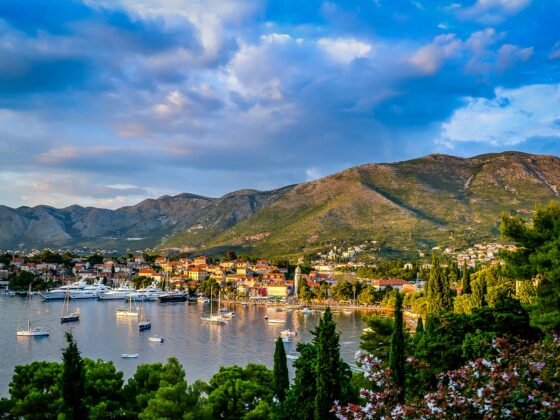Portugal has become an increasingly popular destination for people looking to relocate and live in a different country. With its warm climate, beautiful scenery, and affordable cost of living, it’s not hard to see why so many people are drawn to this Mediterranean country. If you are one of those people looking to live in Portugal, you’ll need to know about the different types of long-term visas available.
In this article, we’ll cover the several main types of long-term visas in Portugal: the D7 visa, the Golden Visa, the D2 Entrepreneur Visa, and others.
The Golden Visa
The Golden Visa program was created in 2012 to attract foreign investment to Portugal. To qualify for this visa, you must make a minimum investment of €500,000 in real estate or €350,000 in scientific research, cultural heritage preservation, or capital transfer to a Portuguese bank. You must also maintain the investment for a minimum of 5 years.
Golden Visas allow you and your family to live and work in Portugal for up to 5 years, after which you can renew it for 2-year periods. After 5 years, you can apply for permanent residency or even citizenship. Another advantage of the Golden Visa is that it allows you to travel freely within the Schengen area.
Long Stay Portugal Visas (Residency Visas)
A Long Stay National visa, also known as a Residency visa, allows you to stay in Portugal for more than a year. Non-EU/EFTA nationals need to apply for this visa to stay in Portugal for more than a year, even if their country has a visa-free travel agreement. To apply for this visa, you need to apply for a residency permit with the Portuguese Immigration and Borders Service (SEF) and show proof that you can financially support yourself throughout your stay.
There are several types of Long Stay Portuguese visas available, including a work visa, study visa, professional training or internship visa, family reunion visa, Portugal Golden Visa, Portugal D7 Visa, and a D2 Entrepreneur Visa. The Portugal Golden Visa is a popular option for those who wish to invest in Portugal and gain residency through their investment. The Portugal D7 Visa is suitable for those who are retired or have passive income, while the D2 Entrepreneur Visa is designed for those who want to start a business in Portugal.
The D7 Visa
The D7 visa is a popular option for those who wish to retire or live off passive income in Portugal. To qualify for this visa, you must show proof of sufficient funds to support yourself, such as pension income, rental income, or investments. You must also have comprehensive health insurance coverage and a criminal record clearance certificate.
The D7 visa allows you to stay in Portugal for up to 1 year initially, after which you can renew it for 2-year periods. One of the main advantages of the D7 visa is that it allows you to work in Portugal if you wish to do so. However, you are not permitted to be self-employed or start your own business.
The D2 Entrepreneur Visa
The D2 Entrepreneur Visa is designed for entrepreneurs who wish to start a business in Portugal. This type of national visas for long stay is one of the most popular with international business people. To qualify for this visa, you must have a business plan that is innovative, has high potential for job creation, and is supported by a recognized incubator or accelerator in Portugal.
The D2 Entrepreneur Visa allows you to stay in Portugal for up to 1 year initially, after which you can renew it for 2-year periods. During this time, you must work on your business and demonstrate progress towards its implementation. You can also work for other companies during this time to support yourself.
One of the main advantages of the D2 Entrepreneur Visa is that it offers a fast-track to obtaining a residence permit in Portugal. After 2 years of holding the D2 Entrepreneur Visa, you can apply for a permanent residency permit, and after 5 years, you can even apply for citizenship.
Study Visa
The Study Visa is a type of long-term Portugal visa available to foreign students who wish to study in the country. This visa is suitable for undergraduate and postgraduate students who have been accepted into a Portuguese academic institution.
To qualify for a Study Visa, the applicant must provide evidence of admission to a Portuguese academic institution and prove that they have the necessary financial resources to support themselves while studying in Portugal.
Family Reunification Visa
The Family Reunification Visa is a type of long-term Portuguese visas created for nationals who wish to join their family members in Portugal. This visa is suitable for spouses, children, and parents of Portuguese citizens or residents. To qualify for a Family Reunification Visa, the applicant must provide evidence of their relationship to a Portuguese citizen or resident and prove that they have the necessary financial resources to support themselves while living in Portugal.
In conclusion, Portugal offers several options for those looking to obtain a long-term visa. The D7 visa is suitable for those who wish to retire or live off passive income, while the Golden Visa is perfect for those who wish to make an investment in Portugal. The Start-up Visa is ideal for entrepreneurs who wish to start a business in Portugal.
Whichever visa you choose, it’s important to carefully consider your options and seek professional advice before making any decisions. With the right planning and preparation, you can make your dream of living in Portugal a reality.












